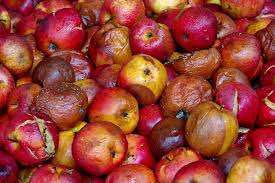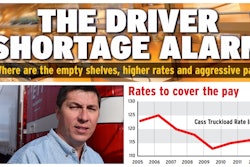I’ve never given an exact quantification for what eleventy-million is exactly, and since I made the word up, for “Wendy-Science” sake, we’ll call it eleven times a million. Let’s just say it’s a whole lot, with way more zeros than I have room for up here, in the intro. And now I’ve used up the intro and don’t have a segue.

All the while, the old man screamed about there never being enough apples to buy, yet he bought eleventy-million of them a year and let most of them rot in the field, because using them properly wasn’t as valuable to him as buying them. He pulped, took their initial value, and discarded them, never once stopping to think about where all the rotten apples were going, or how much more value that apple would have if it were used properly.
And because people in charge couldn’t see the rotting apples, they believed him. They thought there weren’t enough apples. They made laws about apples, but none of the laws they wrote ever made investing in the apples more valuable to the old man, so he kept right on buying and discarding, apple after apple.
Eventually, the rotting apples started stinking enough to make people sick. They began to wonder just how the old man could keep a steady pace of churning through eleventy-million apples a year, and still scream about there not being enough apples, even though he was surrounded by rotting apples. And they wondered why other people, who weren’t buying near as many apples, were making pies and cider and delicious things from their apples, and didn’t have piles of stinking, rotting apples laying around their terminals … I mean, their kitchens.
The answer was simple. The people who bought apples with the intention of investing in them with other ingredients didn’t accumulate piles of rotting apples. They made something better of their apples and profited on the investment from commitment to it. A superior product from the same apples, and no filthy rot to make people sick.
And it became immediately clear to the people, after having to foot the bill of cleaning up all the rotten apples, that it is much less expensive and far more productive to buy less apples, invest in better ingredients, and have fewer rotting apples overall. They also realized, as long as you have old men who churn through eleventy-million apples a year scream about there not being enough apples, there will an abundance of rotting apples.
The End
Now. The next time someone tells you there’s a driver shortage, I want you to tell them this story, or some version of it. It certainly doesn’t have to be this excruciating or about apples, because I wouldn’t blame you if you didn’t want to say or write the word “apple” again for a month after reading it in this story eleventy-million times. Tell them the truth about the driver shortage. Tell them there are companies that churn at higher than 100%, and that’s entirely possible, it’s not Wendy-science, it’s the old man screaming about there not being enough you-know-whats science.
Repeat after me: “There is no driver shortage, as long as companies can sustain a constant churn of more than 40 percent. It is statistically and numerically impossible to have a shortage of something you are plowing through by the thousands, every month of every year, and it doesn’t take Mr. Spock to see the logic here.” (OK, you don’t have to say the part about Mr. Spock, but seriously, for the eleventy-millionth time, there is not a driver shortage.)










